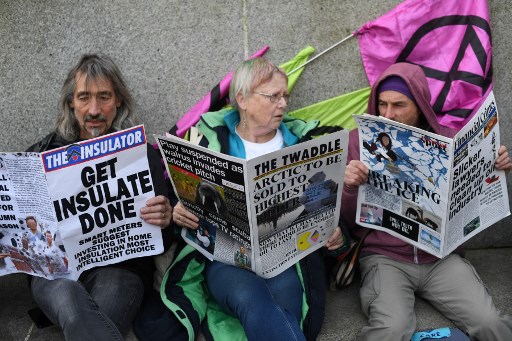
403
Sorry!!
Error! We're sorry, but the page you were
looking for doesn't exist.
West in denial regarding BRICS
(MENAFN) The recent 16th BRICS Summit held in Kazan marked a significant turning point in the history of this association, as participants engaged in meaningful discussions aimed at reshaping the international order. The outcomes of the summit underscore a concerted effort by BRICS to redefine global dynamics at a time when tensions between the West and many conflict-affected regions are more pronounced than ever.
This pivotal moment highlighted the need for reform in the international system, reflecting the aspirations of the Global South. The Kazan Summit provided a platform for member states and partner countries to discuss critical issues such as debt relief, climate finance, and sustainable development—areas where traditional Western institutions like the World Bank and the International Monetary Fund (IMF) have often fallen short of delivering effective solutions.
The inclusion of new partner countries such as Algeria, Uganda, and Nigeria signifies a growing acknowledgment of Africa's increasing influence on the global stage. In Latin America, countries like Bolivia and Cuba are also pursuing closer ties with BRICS, while Southeast Asia sees potential collaboration with the addition of Indonesia, Malaysia, Thailand, and Vietnam as partners. This expansion could be just the beginning, as over 30 nations have expressed interest in joining BRICS in various capacities.
Central to the summit was the adoption of the Kazan Declaration, a comprehensive document that articulates a shared vision for a more equitable world order. The declaration reaffirms BRICS' commitment to multilateralism and calls for substantive reforms in global governance structures.
As BRICS positions itself as a counterweight to Western dominance, the summit in Kazan reflects a broader shift in international relations. By advocating for an inclusive dialogue and addressing the needs of developing nations, BRICS aims to establish itself as a formidable player in the global arena, one that can facilitate change and foster cooperation beyond traditional power structures. This marks a crucial moment in the ongoing evolution of global governance, signaling a future where the voices of the Global South are increasingly recognized and valued.
This pivotal moment highlighted the need for reform in the international system, reflecting the aspirations of the Global South. The Kazan Summit provided a platform for member states and partner countries to discuss critical issues such as debt relief, climate finance, and sustainable development—areas where traditional Western institutions like the World Bank and the International Monetary Fund (IMF) have often fallen short of delivering effective solutions.
The inclusion of new partner countries such as Algeria, Uganda, and Nigeria signifies a growing acknowledgment of Africa's increasing influence on the global stage. In Latin America, countries like Bolivia and Cuba are also pursuing closer ties with BRICS, while Southeast Asia sees potential collaboration with the addition of Indonesia, Malaysia, Thailand, and Vietnam as partners. This expansion could be just the beginning, as over 30 nations have expressed interest in joining BRICS in various capacities.
Central to the summit was the adoption of the Kazan Declaration, a comprehensive document that articulates a shared vision for a more equitable world order. The declaration reaffirms BRICS' commitment to multilateralism and calls for substantive reforms in global governance structures.
As BRICS positions itself as a counterweight to Western dominance, the summit in Kazan reflects a broader shift in international relations. By advocating for an inclusive dialogue and addressing the needs of developing nations, BRICS aims to establish itself as a formidable player in the global arena, one that can facilitate change and foster cooperation beyond traditional power structures. This marks a crucial moment in the ongoing evolution of global governance, signaling a future where the voices of the Global South are increasingly recognized and valued.

Legal Disclaimer:
MENAFN provides the information “as is” without warranty of any kind. We do not accept any responsibility or liability for the accuracy, content, images, videos, licenses, completeness, legality, or reliability of the information contained in this article. If you have any complaints or copyright issues related to this article, kindly contact the provider above.






















Comments
No comment